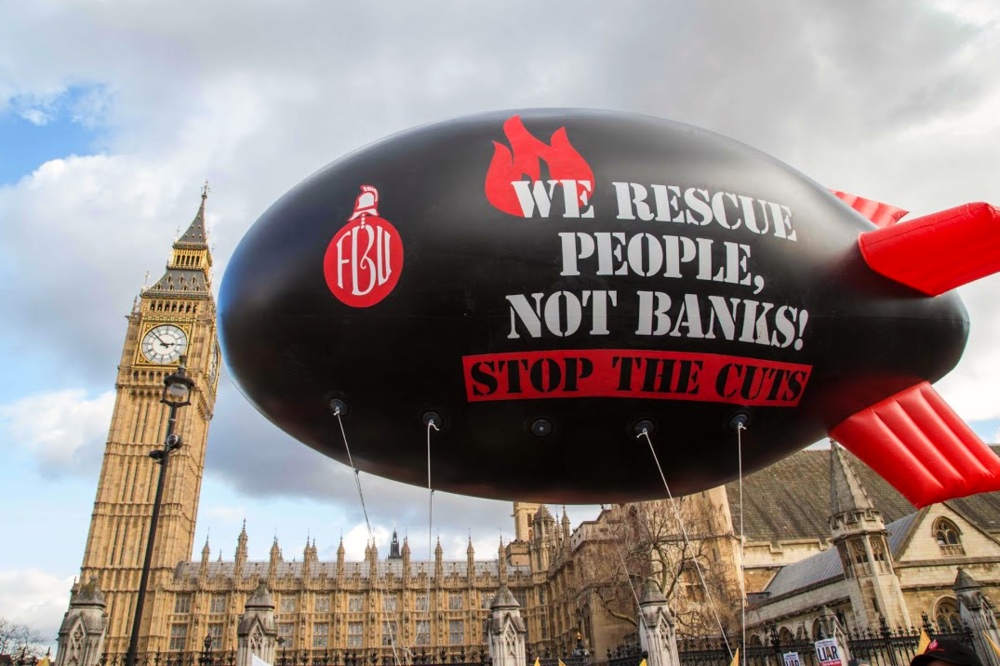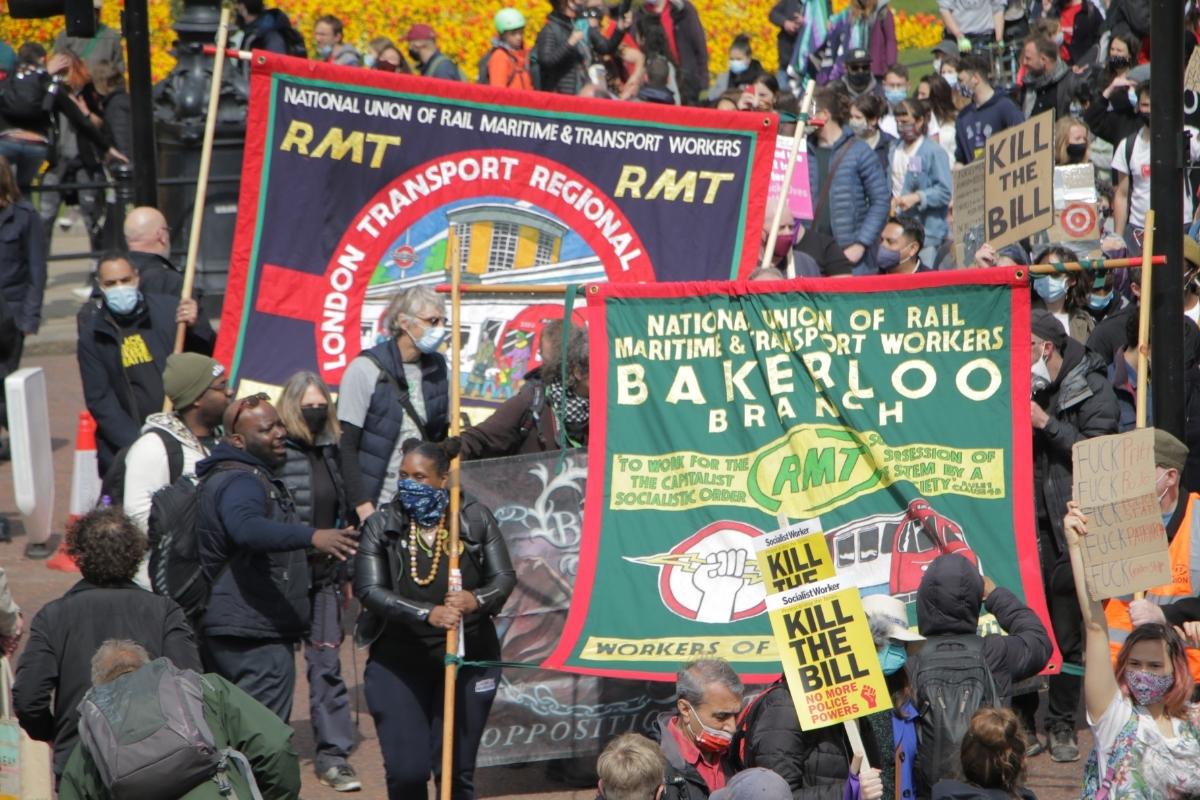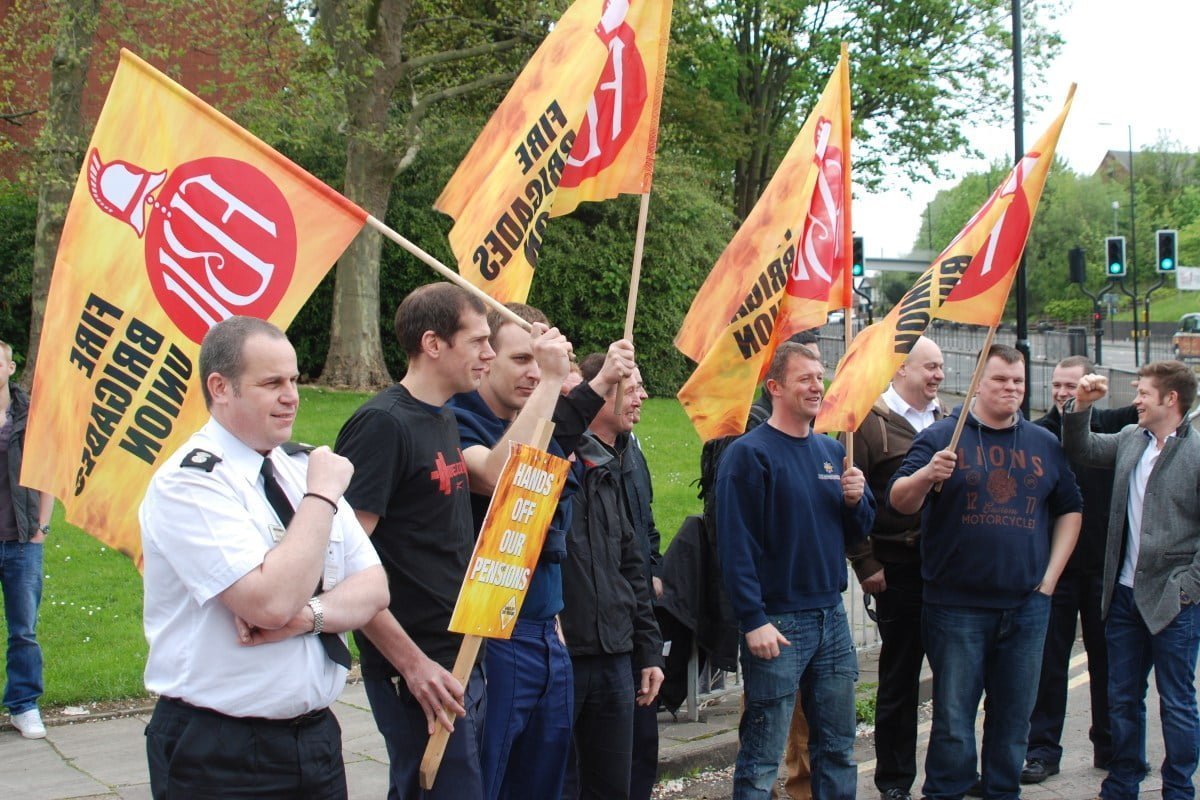The Tories are squaring up for a fight with the FBU. This is part of a wider campaign to take on public sector workers and their trade union rights, in order to slash services, jobs, wages, and conditions. The labour movement must fight back.
Last month’s delegate conference of the Fire Brigades Union (FBU) focussed in on a potentially serious attack on trade union bargaining rights. This could impact the whole public sector.
This move reflects a clearly planned strategy by the Tory government. The whole movement must be prepared to fight back against this.
Tearing up the rule book
The recent FBU conference passed a motion highlighting plans contained in documents produced by Her Majesty’s Inspectorate of Constabulary and Fire and Rescue Services (HMICFRS).
These plans call for existing collective bargaining agreements to be abolished, and a new ‘independent’ pay review body to be set up instead. Linked to this would be the tearing up of the ‘Grey Book’ of agreed pay and conditions.
In a letter to Boris Johnson, FBU general secretary Matt Wrack outlined the union’s response to this latest attack:
“As for concerns over collective bargaining, we are aware of recommendations in HMICFRS reports in January and March 2021 which seek to effectively dismantle the National Joint Council (NJC), on the basis that ‘the NJC is failing firefighters and the public, and is in urgent need of reform’.
“We believe the evidence is flawed in the reports and this calls into question the independence of the inspectorate.
“Local HMICFRS inspections do not identify the NJC as a problem, with only four of 45 raising complaints about national negotiations or local disputes (which the NJC often helps to resolve).
“Yet from four comments, the recommendation was made to ‘consider whether the current pay negotiation machinery requires fundamental reform. If so, this should include the need for an independent pay review body and the future of the ‘Grey Book’’, which sets out firefighters’ conditions of work.
“This is not evidence-based policy development.” (Letter to PM dated 16 June)
Establishment slanders
 We must be clear here. The proposal to scrap collective bargaining and agreed working conditions is a clear and open attack on what has been one of the most militant and best organised trade unions.
We must be clear here. The proposal to scrap collective bargaining and agreed working conditions is a clear and open attack on what has been one of the most militant and best organised trade unions.
The bosses hate what the FBU and other such unions represent: symbols of resistance to their rule. They want to break them.
These proposals come on the back of a long and concerted series of attacks and slanders against the FBU from the establishment.
For example, in February, right-wing magazine The Spectator published an article attacking the FBU for insisting on COVID safety measures, saying: “The FBU embodies British trade unionism at its most obstructive. It hides behind safety concerns…”
What an insult to those firefighters who daily risk their lives to save others, sometimes paying the ultimate price. When The Spectator hack calls trade unions “obstructive”, he means refusing to let organised workers be exploited and treated with contempt.
The government has treated all key workers with contempt, and has sought to refuse them every right – not least over proper safety provisions.
Wider campaign
 We should warn that this Tory targeting of the FBU, however, is not an isolated case. It reflects a wider campaign against all unions in the public sector.
We should warn that this Tory targeting of the FBU, however, is not an isolated case. It reflects a wider campaign against all unions in the public sector.
Last month, for example, we also saw the government pressuring Transport for London (TfL) to take action against the rail unions, targeting safe working conditions, pay, and pensions.
There has also been a renewed Tory campaign against the ‘check off’ scheme currently used in many local authorities, whereby union subs are deducted at source – albeit usually for a fee.
Although direct debit schemes have started to replace the old check off system, this new attack is clearly aimed at putting pressure – blackmail, in reality – on councils to discontinue check off as a means of attacking union finances.
Organise and fight
There is a common thread in all this. The Tories intend to claw back as much cash as possible from the public sector to pay for all the pandemic payouts they have given their rich mates.
An attack on public services was already on the cards before COVID – after all, they have been cutting essential services for decades now. The pandemic has exacerbated and accelerated these attacks.
This means taking on the unions, which in the public sector continue to have considerable membership and organisation. The most militant unions – like the FBU and the RMT and others – will be hit first.
In response, a fightback campaign of industrial action must be organised across the whole public sector, to defend collective bargaining, wages, pensions and workers rights.
Only the might of the labour movement and the organised working class can push back the attacks of the bosses.






